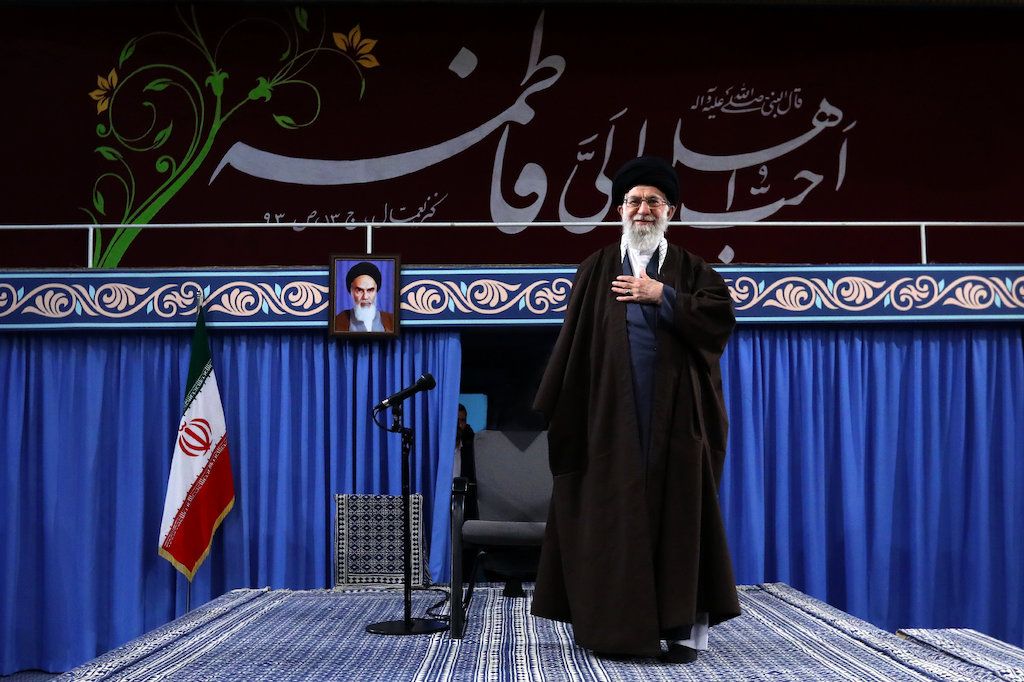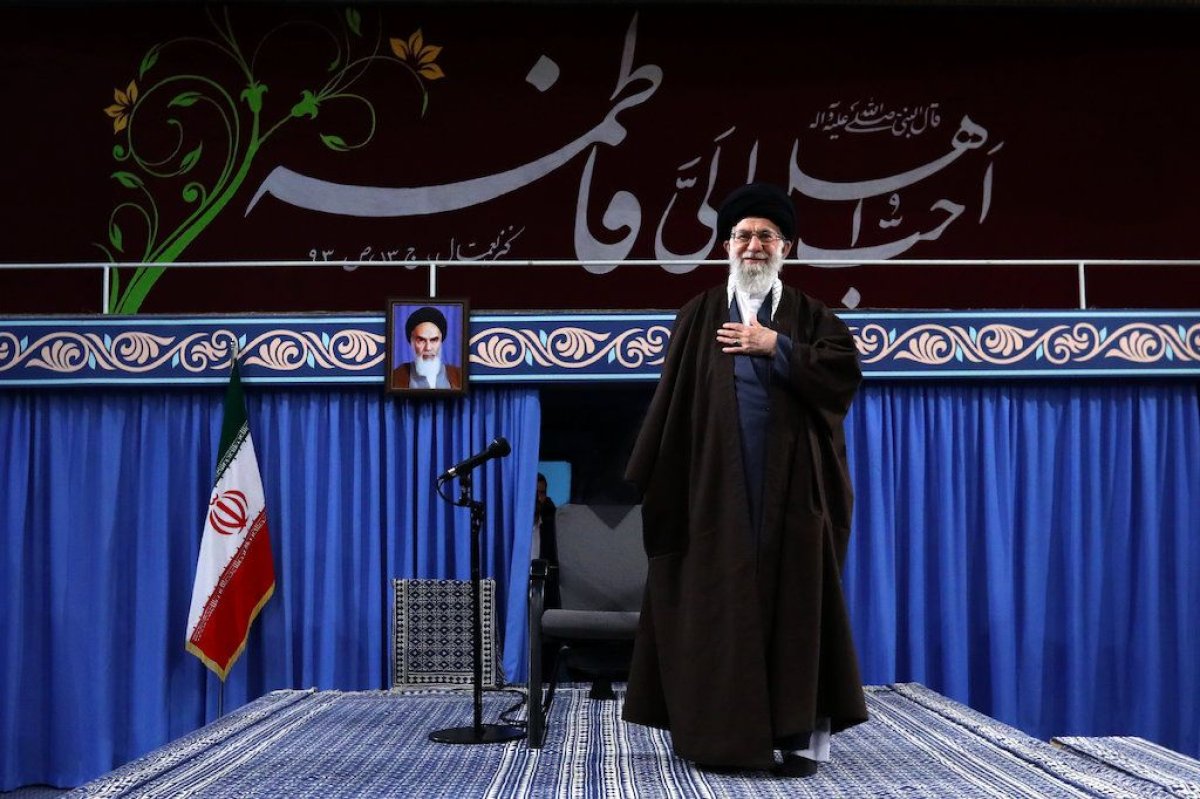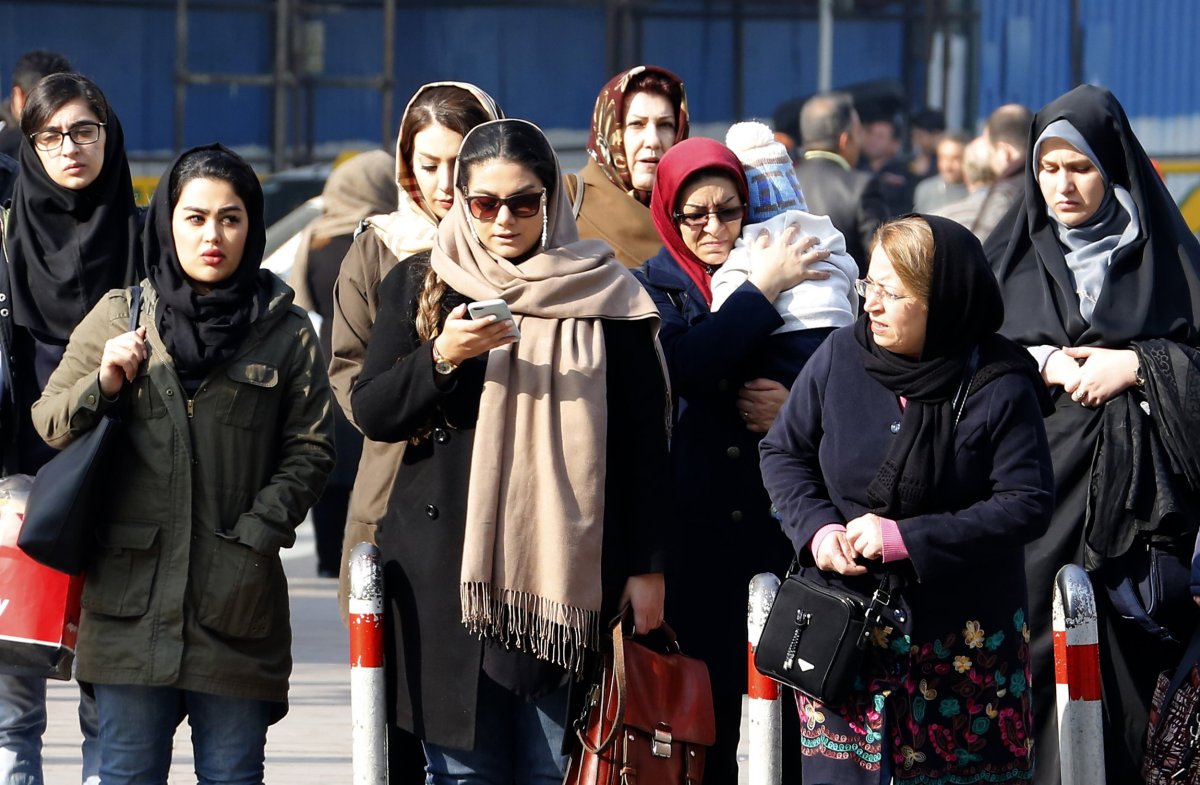
Iran's top cleric and supreme leader has taken advantage of a popular outcry against sexual harassment and assault in the U.S. to highlight the ills of Western society and promote his own revolutionary Shiite Muslim system.
Coinciding with International Women's Day on Thursday, Iranian Ayatollah Ali Khamenei tweeted messages praising the role of women in an Islamic society and fired off on what he called a "deviant model" that reduced women to their physical appearance and sexuality in the West.
Related: Saudi Arabia Calls Iran, Turkey and Islamic militants the 'new axis of evil,' Egypt reports
Khamenei, whose government the U.S. has criticized as being repressive and supportive of terrorism, countered by evoking the #MeToo social movement that has seen women, especially in the U.S., speak out against abuses committed by high-profile figures, targeting those in entertainment, journalism, politics and even President Donald Trump himself.
"The western model for women is symbolic of consumerism, cosmetics, showing off for men as a tool of male sexual arousal. All they claim, including gender injustice and so on, is just talk. The reality is different," a tweet read on his official English-language Twitter account.
You have heard that a significant number of prominent women in the west declared one after the other over the past few months that while on their job, they have been violently and forcefully abused. They were prominent western women.
— Khamenei.ir (@khamenei_ir) March 8, 2018
"You have heard that a significant number of prominent women in the west declared one after the other over the past few months that while on their job, they have been violently and forcefully abused. They were prominent western women," the following tweet continued.
Khamenei appeared that day at an event commemorating the birth of Fatimah Zahra—the only daughter of the Islamic Prophet Muhammad and a revered figure in Shiite Islam—and began his series of tweets by sharing previous quotes of his own that addressed the role of women.
"If women do not take part in a social movement of a nation, that movement will not gain any results. July 11, 2012."
"Women are stronger than men. Women can completely control and influence men with their wisdom and delicacy. May 11, 2013."
"The best people who can follow up and solve women's issues are women themselves. Apr 19, 2014."

Hours later, he praised the framework of the "Islamic woman" and "today's Iranian woman," whose traits include "modesty, chastity, eminence, protecting herself from abuse by men, refraining from humiliating herself into appeasing men." He said the hijab, which is mandatory for women in Iran to wear, blocks female Muslims from being subjected to the abuses they would suffer in the West, calling the headscarf "a means of immunity, not restriction."
He also condemned what he called Western plots against Iran, calling the U.S. government a "provoker of sedition & corruption." Khamenei and Iranian Foreign Minister Mohammad Javad Zarif have previously taken to social media to criticize Trump's support for widespread protests earlier this year that the Iranian government has partially blamed on outside actors such as the U.S., Israel and Saudi Arabia.

International Women's Day is considered a public holiday in a number of countries around the world, including Afghanistan, Armenia, Azerbaijan, Belarus, Burkina Faso, Cambodia, China (for women only), Cuba, Georgia, Guinea-Bissau, Eritrea, Kazakhstan, Kyrgyzstan, Laos, Madagascar (for women only), Moldova, Mongolia, Montenegro, Nepal (for women only), Russia, Tajikistan, Turkmenistan, Uganda, Ukraine, Uzbekistan, Vietnam and Zambia.
It is not an official holiday in Iran and demonstrations in support of it are often broken up by authorities. The U.S. has not recognized International Women's Day, either, likely because of the day's socialist origins.
Uncommon Knowledge
Newsweek is committed to challenging conventional wisdom and finding connections in the search for common ground.
Newsweek is committed to challenging conventional wisdom and finding connections in the search for common ground.
About the writer
Based in his hometown of Staten Island, New York City, Tom O'Connor is an award-winning Senior Writer of Foreign Policy ... Read more
To read how Newsweek uses AI as a newsroom tool, Click here.








